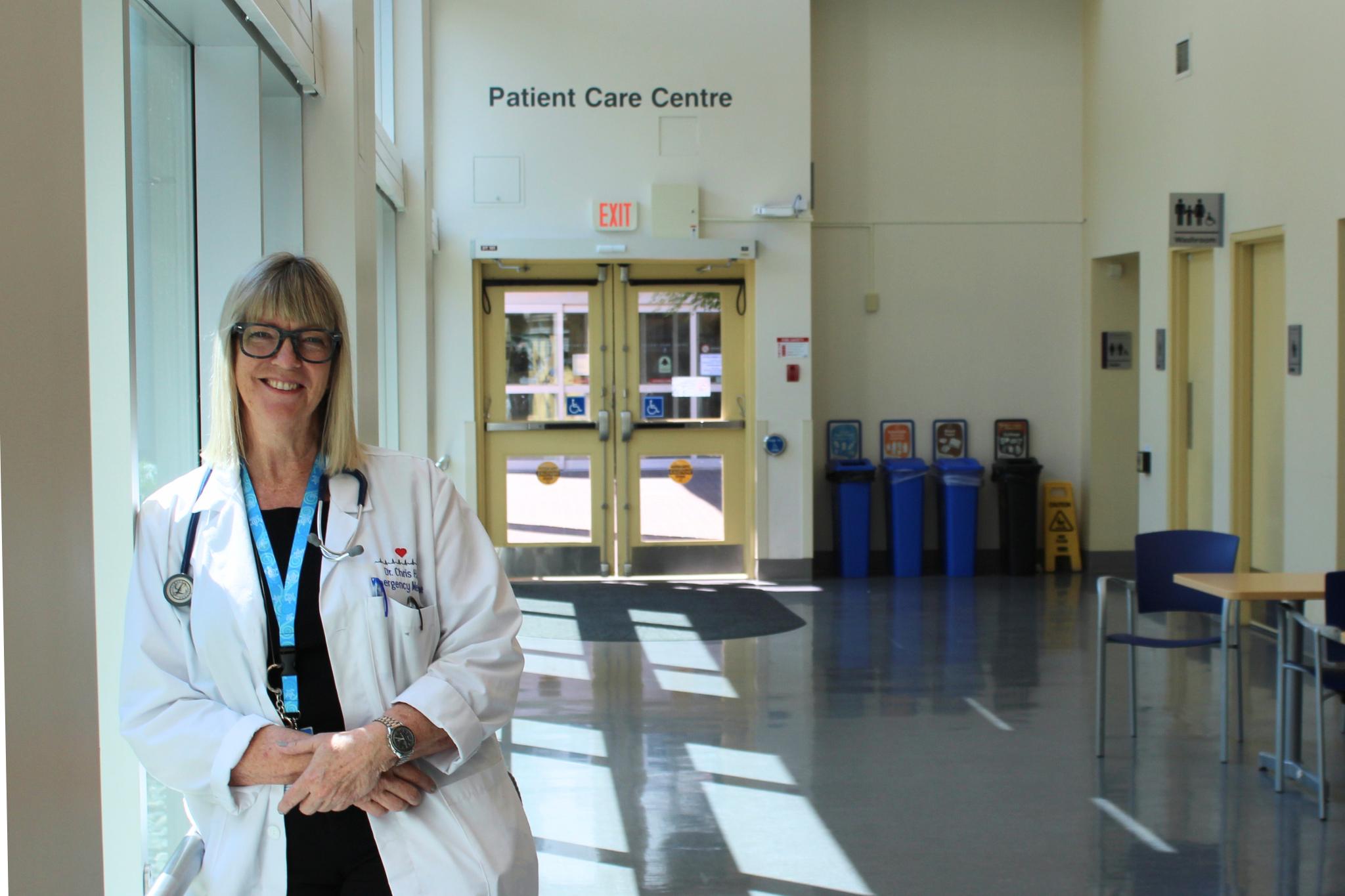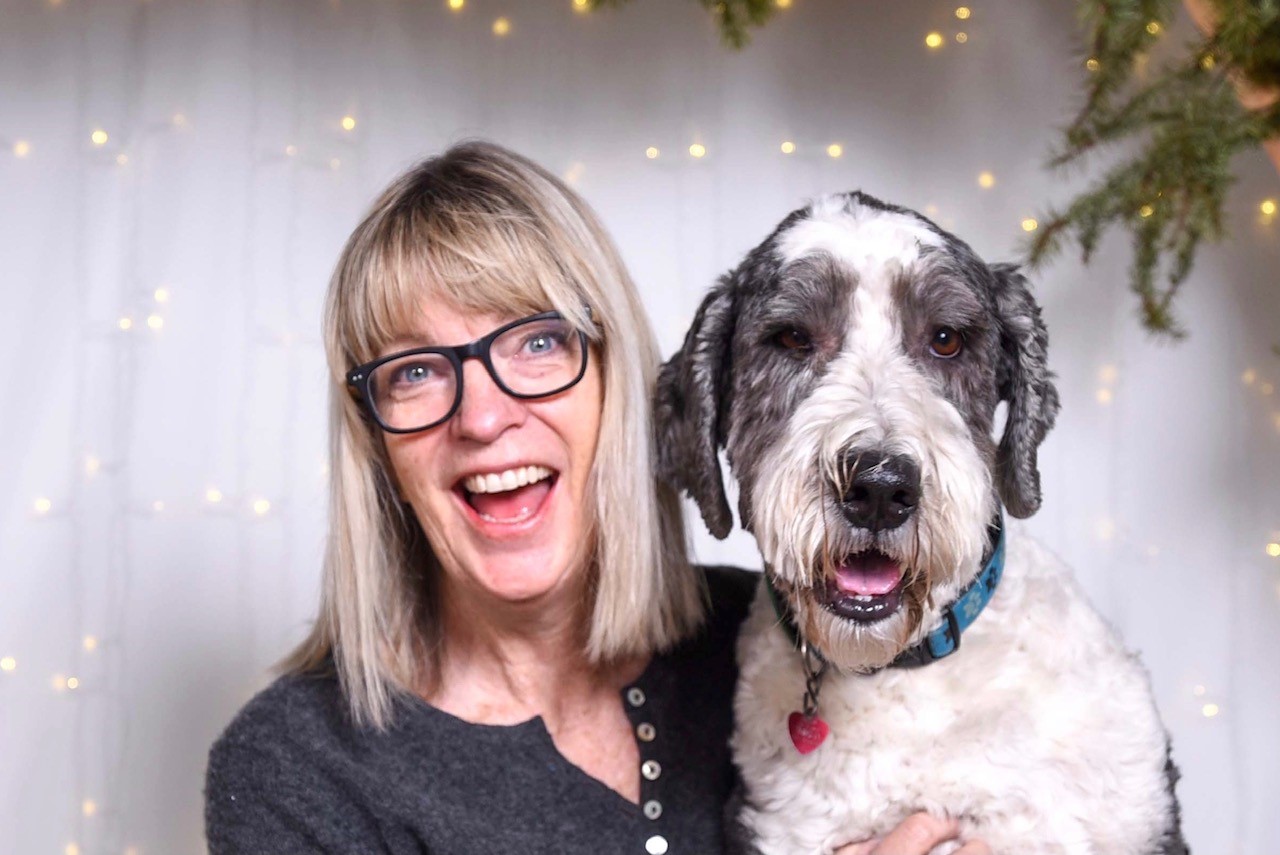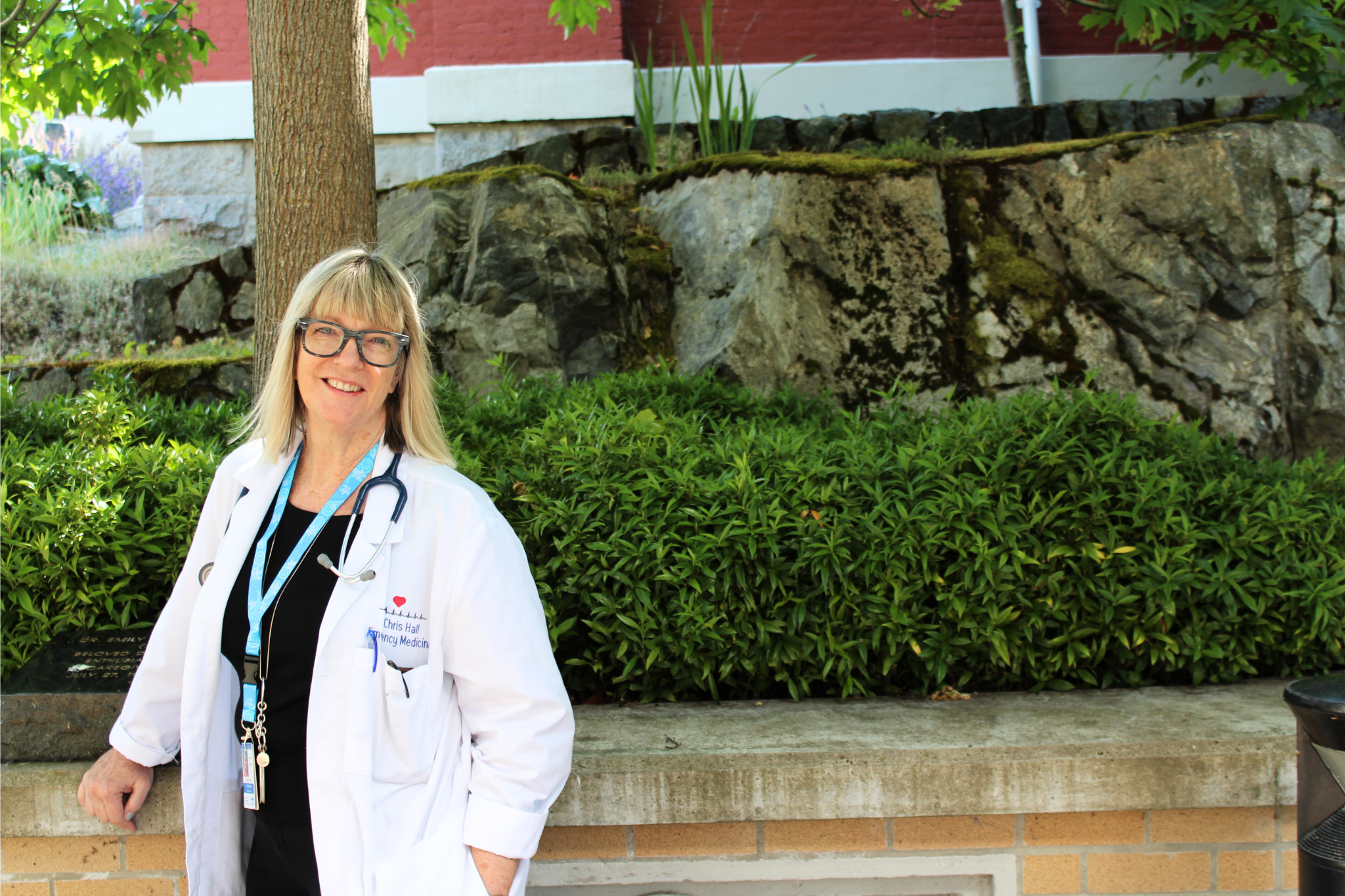
Dr. Chris Hall:
Emergency Physician at Royal Jubilee and Victoria General hospitals and Executive Medical Director, Island Health; skier, dog-mom, friend, sister, aunt, human
I got into medicine completely by accident. I grew up in a really small town in rural Nova Scotia, and my graduating class was 35 people. In grade 10, the guidance counselor had asked me what I was going to be, and I said I was going to be a teacher. My whole life, I was going to be a teacher. My dad taught in a vocational college, and my mom was a homemaker, so it was the only profession I knew.
The guidance counselor said, “You can’t be a teacher, there won’t be any jobs when you’re done. You should be a nurse. That’s what all of your friends are doing.” In my town, only rich kids went to university, and we definitely weren’t the rich family. I asked how much that would cost, because I knew I was going to be raising the tuition through summer jobs.
The tuition was $300/year, including room and board, to attend the Victoria General Hospital School of Nursing in Halifax. I raised the money waiting tables at the local motel.
Before nursing school, I had never been in a hospital in my life. I didn’t have a clue. When you grow up on a farm, your mom fixes your cut finger with duct tape. I failed my first rotation. I couldn’t understand the concept of holding sheets away from you. As a farm kid, I thought, “What? Are you going to get an infection from a sheet?”
But I had to figure it out. I couldn’t be failing things, because I didn’t have any more money.
One day, I was taking care of my patient when there was a cardiac arrest in the next room. My instructor rushed in and said, “What are you doing? Get in there!” And I said, “Oh, I don’t think that’s a great spot for yours truly.” But I went and watched this young resident running the code, and I had never seen anything like it—not on TV, not anywhere. As I was watching him, I just thought, well, that’s the job. That’s the job to have.
“Before nursing school, I had never been in a hospital in my life. I didn’t have a clue. When you grow up on a farm, your mom fixes your cut finger with duct tape.”
“So, fast forward: I ended up doing very well in nursing school. When I graduated, I moved to Calgary, where there was a nursing shortage. I got my first job at Calgary General Hospital on a 35-patient medical cardiology ward.”
But I also thought, what? Am I going to go to medical school? That’s not going to happen.
So, fast forward: I ended up doing very well in nursing school. When I graduated, I moved to Calgary, where there was a nursing shortage. I got my first job at Calgary General Hospital on a 35-patient medical cardiology ward.
After working on the ward for a year, one of the intensive care nurses said, “You’re the only one who seems to really know your patients. You should come work in the ICU.” Six years later, I was the Clinical Nurse Leader of the department, and then I left because a cardiologist needed someone to run these heart attack trials in Calgary. I basically saw every heart attack in Calgary for five years, and by the end of it, I was very skilled.
I’d been there for five or six years when we were studying another research trial, and I felt like I needed something different to do. But I thought, how am I going to go back and do my degree? I only had my RN, not my Bachelor’s of Nursing, but they had hired me because I had great references from the ICU. Anyway, one day my boss called me into his office and goes, “Hey, do you have five minutes?”
I remember he shut the door, and he never shut the door. I thought I was being fired. But he said, “We think you should go to medical school. Do you want to go to medical school?” And I said, “Nobody knows about that. Nobody.”
He said, “Look, you’re running your own service. You have your own clinic. You basically write your own orders. We’ve all talked, and you need to go to med school.” I said, “I can’t go. I don’t even have an undergraduate degree.” And he replied with, “Well, you better get to it then.”
The next week, he asked what I was going to do, and I said I was going to quit my job and go to school while I picked up nursing shifts in the ER. But he said, no, don’t quit, and he told me I could do my research job on evenings and weekends—whenever I wanted to do it. They supported me to go back to school and get my undergraduate degree.
Eventually, I applied to med school, and by some small miracle, I got in.
I did have to give up my research job once I got into med school, so I took on casual nurse shifts in the ER to support myself instead. At night, I would be the senior charge nurse in emergency, working with my own junior resident who was my boss during the day. I would be a patient’s nurse from 7-11, and then from 11-7 I would be on-call and take care of that same patient as a medical student.
I moved to Victoria in 2006, and advanced up through the Island Health administration. Now, I’m doing an associate VP job, and I’m still working in emerg as a weekend warrior. I get to watch very smart young people be good at their jobs, and it’s really cool.
I love my nursing colleagues because they all know I was a nurse before. We have solidarity. I’m not registered as a nurse anymore and I couldn’t start an IV to save my life (other than a central line!), but I’ll hear our senior nurses telling the junior nurses, “That’s Dr. Hall, she’s a nurse.” I love that.
I was a nurse for 15 years before I went to medical school. The oldest person in my med school class was 46, and he was still looking at a 20-year career. The less you do, the less you want to do, and your world becomes small. But when you start to venture out, you find things you didn’t even know you wanted to do. So buy the shoes, get the ice cream, and take the leap, because it’s never too late.
“I’m not registered as a nurse anymore and I couldn’t start an IV to save my life (other than a central line!), but I’ll hear our senior nurses telling the junior nurses, “That’s Dr. Hall, she’s a nurse.” I love that.”
They are humans first, who put other humans first.
More than 8,900 caregivers and staff work around the clock in our Victoria Hospitals
#HumansFirst is dedicated to sharing the stories from behind our hospitals’ frontlines. These stories remind us that those who provide care and keep the lights on in our hospitals also have lives outside of them. They have family and friends, they enjoy hobbies and interests, and they have all lived through their own personal triumphs and heartbreaks. Like all of us, they are human, and they have a story to tell.







